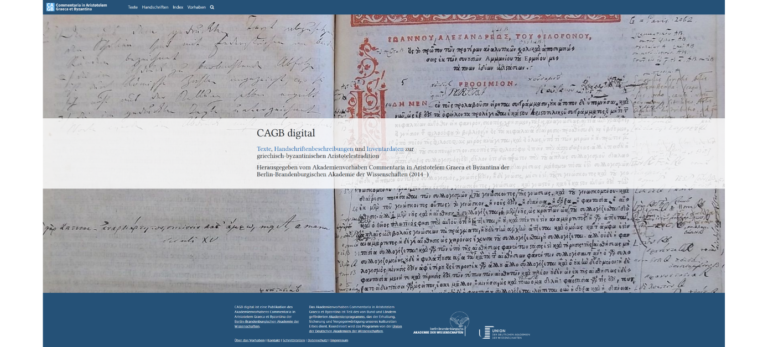
Das Akademienvorhaben hat die philologische Erschließung und kritische Edition antiker und byzantinischer Kommentare, Paraphrasen, Kompendien und Scholien zu den Schriften
Short description of the project
We are building a diversity corpus (DisKo) as the basis for the algorithmic text analysis. DisKo comprises narrative texts written in the last 100 years in which not only male, female and neutral roles occur, but also descriptions of non-binary characters. The corpus serves as training material for a classifier for the automated analysis of gender roles in German-language literary texts.
Project content
DisKo stands for Diversity Corpus (German: Diversitätskorpus) and is a project in the field of Computational Literary Studies. We use machine learning to train an algorithm that not only recognises female, male and neutral roles in literary texts, but also less binary gender attributions. For this training process, we first need a training corpus that is as diverse as possible and consists of texts in which non-binary gender attributions occur. As part of a public humanities concept, as many different groups of readers as possible are involved in the acquisition of the corpus. The more diverse the people involved in the creation of the corpus, the more diverse the texts in our training corpus will ultimately be. This diversity is important in order to make gender diversity visible with our digital humanities approach. The central component of the project is a survey in which you can submit your text references. Do you know of literary works in which characters are not described stereotypically, but in a diverse way? Then take part in our survey via the link, enter text suggestions and help us to build up a diversity corpus: https://public.zenkit.com/f/klZHAjPGg/disko?v=xQoeCRIop
Add your DH research project to the project showcase by submitting a short project description via the web form. Enter project data, a brief description, a graphic or visualization as well as a detailed description of the project content with technical assignment, addressees, added value, project managers, funding information and duration.

Das Akademienvorhaben hat die philologische Erschließung und kritische Edition antiker und byzantinischer Kommentare, Paraphrasen, Kompendien und Scholien zu den Schriften
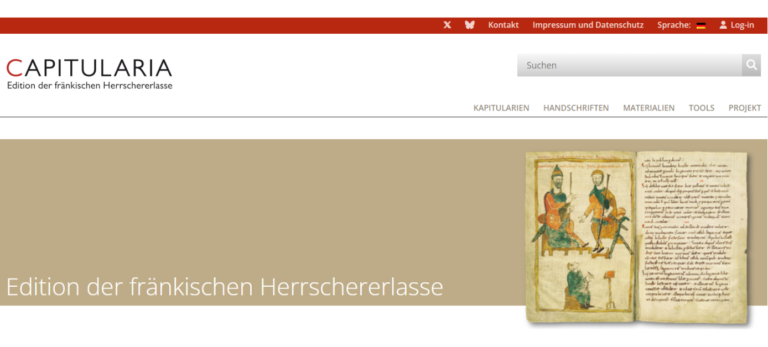
Das Projekt erarbeitet eine Neuedition der fränkischen Herrschererlasse („Kapitularien”), die zu den zentralen Rechtsquellen des europäischen Mittelalters gehören. Zum einen
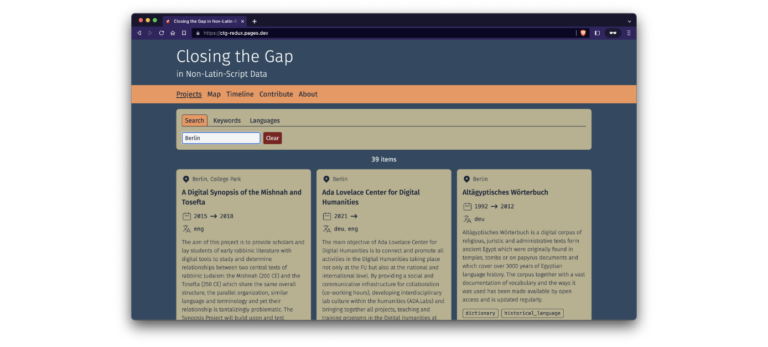
Das Fach ist BUA-finanziert und am Seminar für Semitistik und Arabistik angelegt. Es fokussiert sich auf die Analyse des status
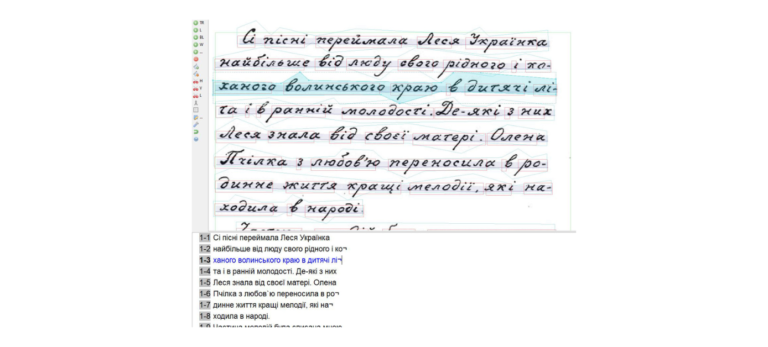
Das MultiHTR-Team setzt die Ergebnisse der ersten erfolgreichen Projektphase (01. Juni 2020 bis 31. Mai 2022) fort, um in der

Das Akademienvorhaben hat die philologische Erschließung und kritische Edition antiker und byzantinischer Kommentare, Paraphrasen, Kompendien und Scholien zu den Schriften
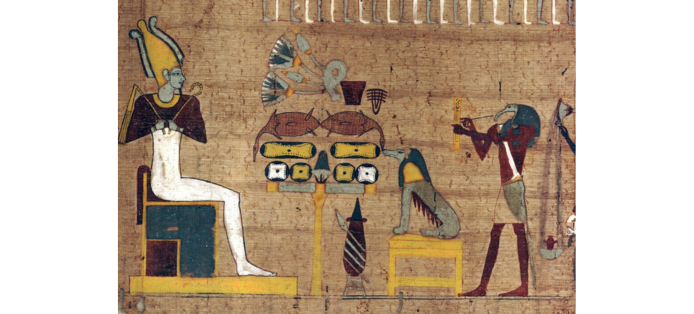
Publikation der Daten zu Textzeugen des altägyptischen Totenbuchs aus dem Akademievorhaben „Altägyptisches Totenbuch“ (1994/2004–2012). Das 2012 veröffentlichte Portal bietet Beschreibungen,
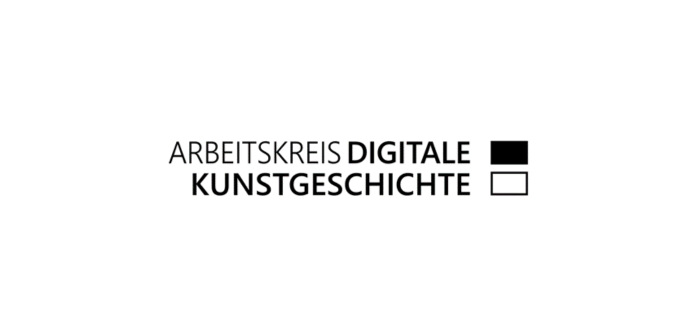
Der Arbeitskreis organsiert das #ArthistoCamp, die Schriftenreihe Computing in Art and Architecture und den #arthistocast – der Podcast zur Digitalen
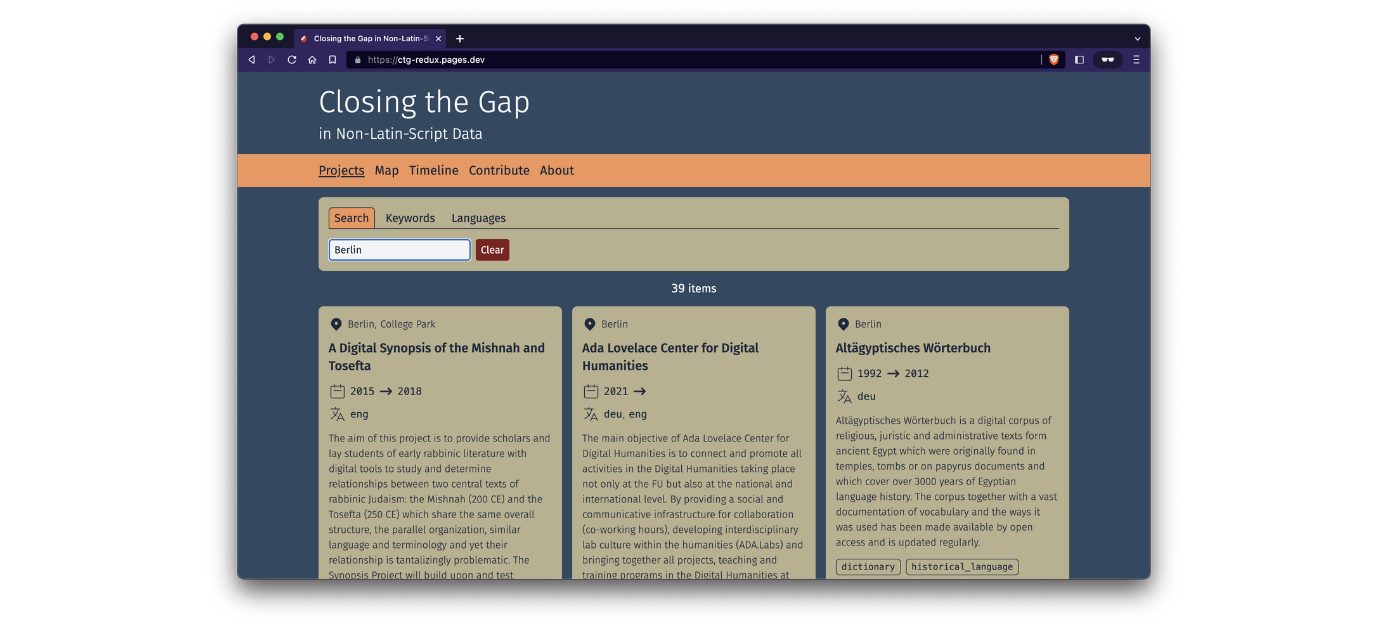
Das Fach ist BUA-finanziert und am Seminar für Semitistik und Arabistik angelegt. Es fokussiert sich auf die Analyse des status
Wir verwenden Cookies und ähnliche Funktionen zur Verarbeitung von Daten. Die Zustimmung ist freiwillig und kann jederzeit widerrufen werden.